Tuesday’s Children | Czar interview
Tuesday’s Children were sixties psychedelic pop group that morphed into prog rock band Czar at the beginning of 1970 and released the ‘Czar’ album in May 1970.
Interview with Bob Hodges, keyboard
I was born in Chingford, North East London on 19th September 1946. My parents married in 1940. My father joined the army not long after they married, and he was sent abroad in 1941. He travelled to Burma (now Myanmar) via west, south and east Africa where the army trained colonial (African) troops. He then went to Madagascar, Ceylon (Sri Lanka), and India, finally arriving in Burma fighting the Japanese. He arrived home in December 1945. I lived in Chingford until 1969 when I moved to North London. When I was 15, youth clubs were the only place to see bands, as I got older I was able to go to pub clubs, and concert halls. There was a big pub scene in London and lots of clubs. Out in the suburbs the clubs usually used the function room in a pub and would open at least once a week. Our nearest club was at a pub called the Cooks Ferry Inn which was on the North Circular Road on the border between Chingford and Edmonton. We would go there to see bands like Zoot Money’s Big Roll Band, Georgie Fame & the Blue Flames, John Mayall & the Bluesbreakers, Spencer Davies Group, I even saw Cream there, it was their 2nd public gig, I think they had made their debut at the Reading Festival the night before. They soon moved on to bigger venues however. Both my father and grandmother were good pianists, so we were a musical family.
I started having piano lessons when I was 8 years old. My piano teacher had taught my father so naturally I went to her. She lived in Chingford, about 10 minutes bike ride from our house. I got on OK, my repertoire was strictly classical and it wasn’t until I was 15 that I got interested in popular music. I went through the grade exams for both practical and theory. I was always a couple of grades ahead in theory although I achieved a reasonable playing standard. Music in senior school was strictly classical and most pupils were not that interested. There was a small group of musicians who mostly played piano. Instrumental teaching in school was only just starting in the late 1950’s. I took up the clarinet in 1958. My teacher was a young Hungarian musician who had escaped Hungary after the revolution in 1956. I started listening to records by Ray Charles and Chuck Berry in about 1961 and I learnt how to play a 12 bar blues by copying the records. My piano teacher told me that I had a good ear. I could pick out melodies and play them back quite easily, a skill that became very useful later on. Later I heard Billy Preston and was really knocked out by his organ playing, particularly his use of glissandos and changing the speed on the Leslie speaker, closer to home I loved Zoot Money, Brian Auger and Georgie Fame.
I joined my first group in August 1962, a friend of mine at school (Sir George Monoux Grammar School in Walthamstow) had a friend (Stephen Mugele) who was learning the saxophone and he was in a group with friends from his school (Forest School, Woodford). Stephen’s family owned property in Walthamstow which included an old barn where they would rehearse. There was a piano in this barn and they asked me to join. The repertoire was all instrumental and included tunes by the Champs (“Tequla”!) and Johnny and the Hurricanes amongst others. We spent the summer holidays rehearsing. I acquired a small organ that could fitted to a piano so that I could play stuff like “Red River Rock”. We later on moved to rehearse in a pub in Woodford called ‘The Rising Sun’ and we performed there on Christmas Day in 1962 at a private party for the landlord. We also played at some local youth clubs. In 1963, my piano teacher told me that her nephew was in group and they were looking for a pianist. They rehearsed in a youth club in Walthamstow and they were into R & B and were called ‘Red Whites Blues’, anyway I went along to a rehearsal and ended up joining them. We had youth club and pub gigs, later on Stephen the sax player joined us and in 1964 we got 2nd sax player and the group became a soul band called the ‘New Jump Band’.
I joined the Attack in December 1966 after answering an advert in ‘Melody Maker’, we recorded the first single “Try It/We Don’t Know” in December 1966. Alan Whitehead played on this record but then got a better offer from Marmalade so he never actually did any gigs with us. The 2nd single “Hi Ho Silver Lining/Any More Than I Do”, was released in February 1967, so I played on the 1st two singles. I had bought my Hammond organ in May 1965. I had left school and was working the accounts office of a local factory in Chingford, an experience which has been very useful all my life. I quit that job to join the Attack. During March 1967 however, we had a disagreement with the singer Richard Shirman so all of us – myself on organ, David O’List on guitar, Gerry Henderson on bass, and Peter Barnfield on drums, quit the Attack and Richard went on to form a new version of the Attack with different musicians. I joined with David O’List in 2018 to revive the Attack for the HRH Prog Rock Festival In North Wales which was in November 2018. We performed 3 of the 4 songs that we had recorded with the Attack (not “Hi Ho Silver Lining”!) plus new material that David had written. It went well and David wanted to do more gigs but I decided that I had too many other commitments to make this possible. The bass player for this gig was Roberto Vitelli of the Italian prog rock band ‘Ellesmere’ and the drummer was a guy that I knew who came in at the last moment after the original drummer dropped out.
After leaving the Attack I went to Germany to join an Irish covers band called the Kingpins. They had been working in what was the US zone of the country (then West Germany) which was in the south of the country ie Frankfurt am Main, Stuttgart, Mannheim, Mainz, Munich, etc. The Kingpins had been doing monthly residences in US airforce and army bases but I joined at the start of a tour of US bases that took us all over southern Germany. We opened the show, we were doing a wide variety of material ranging from soul to country & western although the tour was supposed to be a country music tour, top of the bill was US C/W star Hank Locklin, 2nd on the bill was Irish singer Clodagh Rodgers, her father was Louis Rodgers who was an agent and also managed the Kingpins. She was known as a country artist but was trying to get away from that image. Later she would have several UK pop hits. We provided the accompaniment for Hank and Clodagh. I did enjoy this tour. The money was good and I enjoyed being away on what was my first foreign tour. We eventually returned to the UK in June 1967 and then did some UK dates. We returned to Germany for some more dates and then back to the UK. Unfortunately the Kingpins finished at the end of the tour, so it was back to the musicians wanted adverts in the Melody Maker. It was at this point, end of July/beginning of August 1967 that joined Tuesday’s Children.
Tuesday’s Children had been around for a year or so and had released 3 singles, then Phil Cordell, who had been the main songwriter and vocalist left to go solo. The other 3 members (Mick Ware, Derrick Gough, and Paul Kendrick) decided to reform the group by adding keyboards and 2 sax players. The group had a very energetic manager called Dave Vidler. He got the group a lot of gigs and also got a record deal with Pye Records. We did 2 singles for Pye, the A sides were written by Peter Callander and Mitch Murray who had had hits with the Tremeloes, the B sides were written by Mick Ware. In December the sax players quit to join another band and we made the decision to carry on as a four piece. Mick Ware had taken over lead vocals although there was a lot of harmony vocals from myself and Paul Kendrick. At this point we were doing some of our own material plus covers of songs like the Byrds’ “Eight Miles High”.
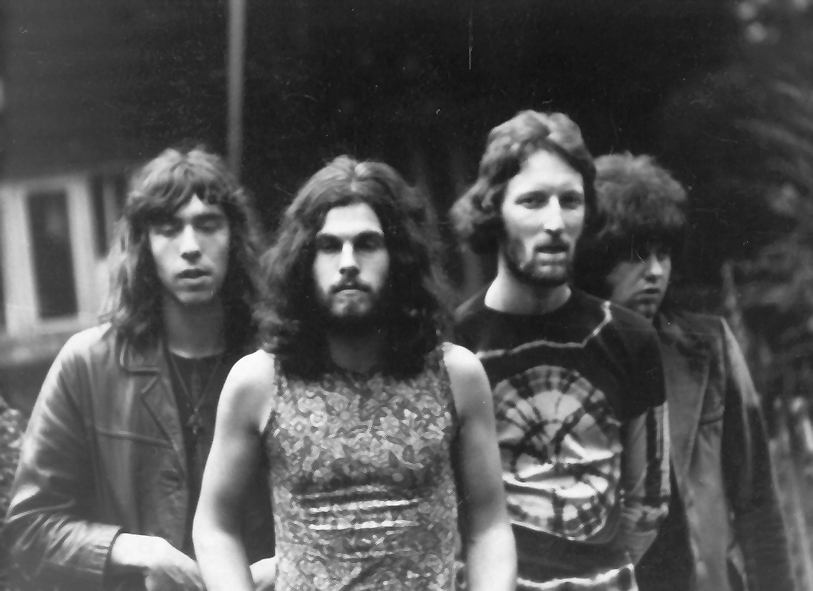
Dave Vidler got us a contract with Philips Records in the spring of 1968 and we started recording for them in May 1968. The first single released by Philips was “She” which was written by Mick Ware, the B side was a song by an English band who were big in Italy called the Rokes, the English title of the song was “Bright Eyed Apples”. Towards the end of 1968 we were asked by Philips to record an album the producers were to be Brian Shepherd and the DJ Dave Cash, in the event Dave Cash didn’t have anything to do with the production and Brian Shepherd only attended 1 or 2 sessions which left us to work with the engineers Dave Voyde and Roger Wake.
I don’t know why the album was released on Fontana instead of Vertigo, we thought it should have been on Vertigo but the decision was in the hands of Philips management who decided otherwise. I think that the initial pressing was 800 copies, hence its’ rarity today.
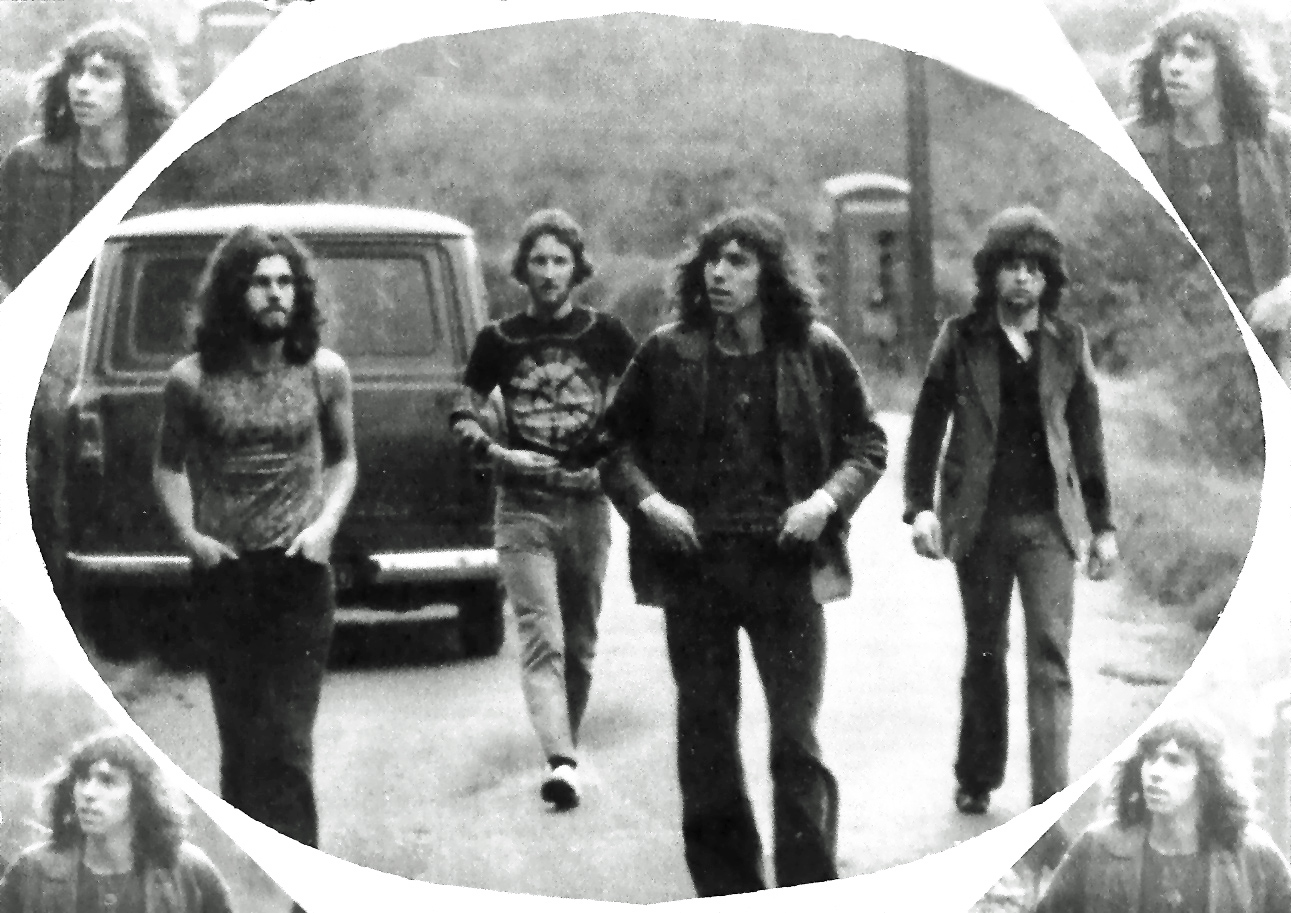
We started to record the album on 17th January 1969, there were 12 sessions, the final one being on 27th February 1970. The whole album was recorded at Philips studios in Stanhope Place which was near Marble Arch in central London. We were gigging a lot and many of the sessions were during the night when we had the studio to ourselves and be there for 7 – 8 hours at a time. The total time recording the LP was probably around 50 hours in total.
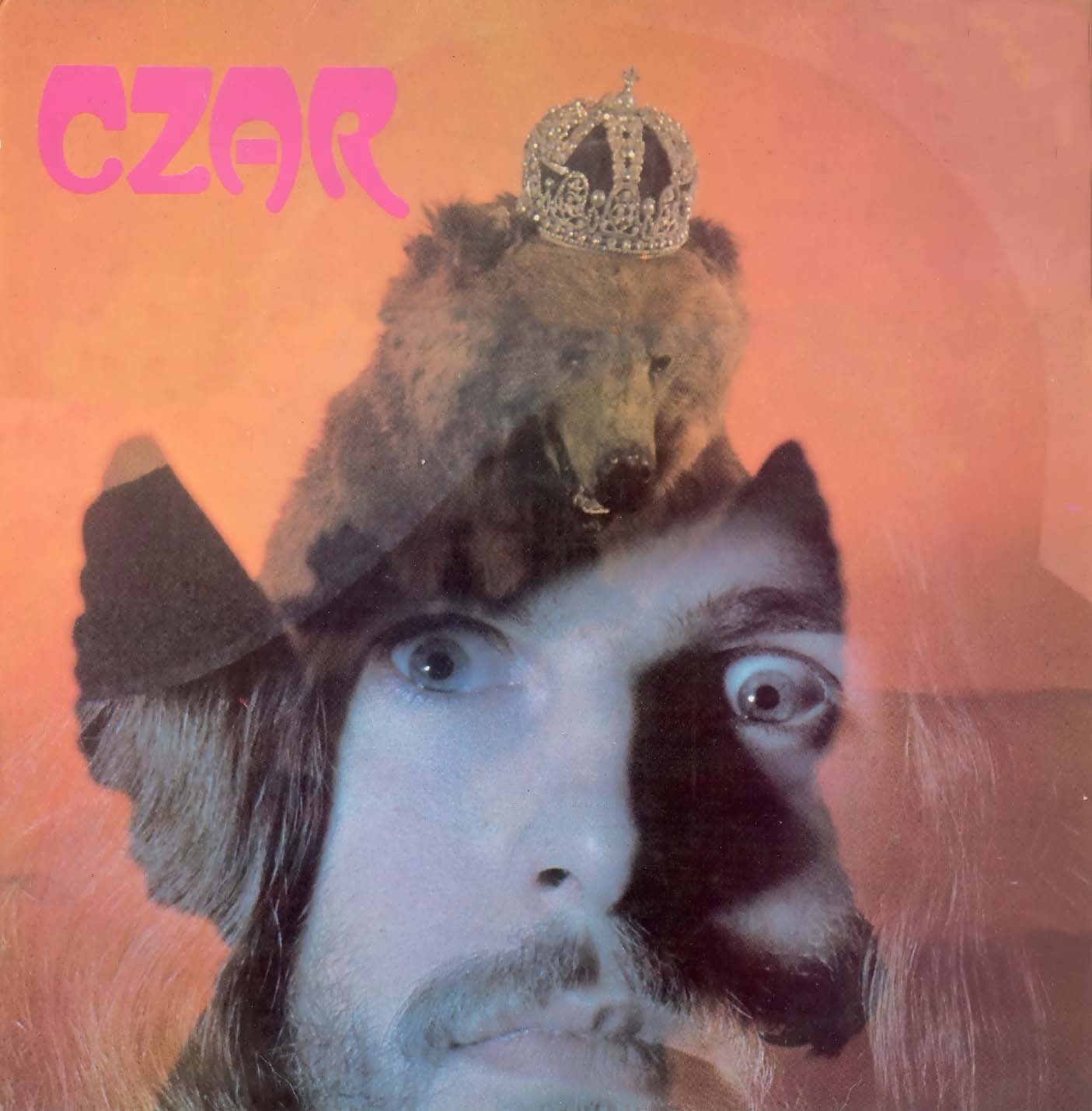
“We were very much left to our own devices”
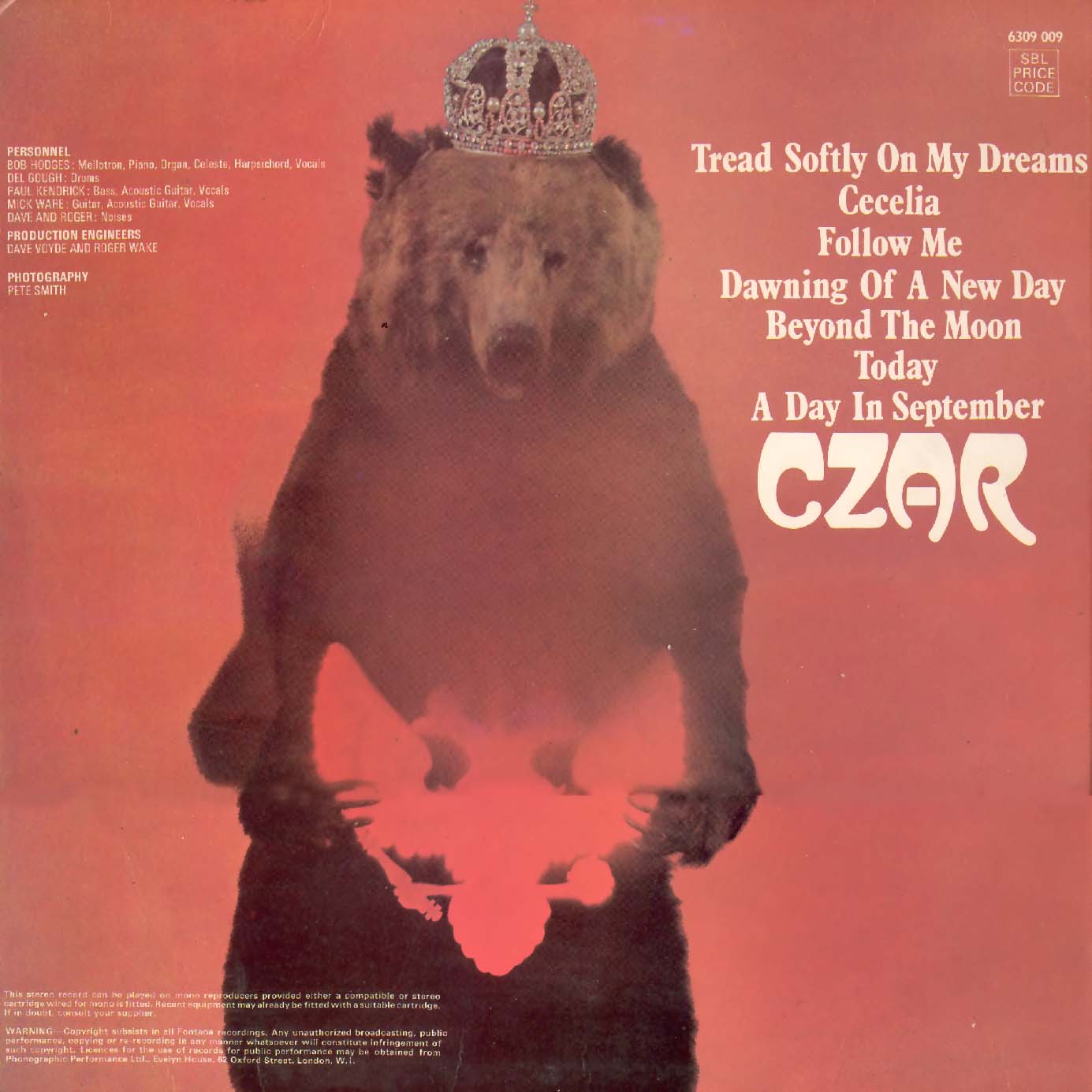
We were very much left to our own devices, for instance there would often be instruments in the studio that been hired in for other sessions and had not been collected by the hire companies, that was how I came to add Mellotron and harpsichord to the tracks plus I would often use the very nice Steinway piano in the studio to beef up the sound.
“I think the vocal harmony work makes the Czar album a bit different from others made around the same time.”
On live gigs I was only using Hammond organ and electric piano, but we managed to get away with it. In 1969 I had seen early King Crimson gigs and we had done gigs with the Moody Blues so I was familiar with the sound of the Mellotron and also how creative you could be with this instrument. I think it is fair to say that both these bands influenced me and the rest of the band in the way we recorded the LP. My classical background also influenced my Mellotron and organ playing. I guess the Moody Blues also had that classical feeling about the way they arranged their songs. The other thing we worked hard on was the harmony vocals, the principal being that 3 voices were better than one, when we were recording “Cecelia”, which is mostly sung in 3 part harmony, one of the engineers kept on asking which was the lead vocal. We had to explain to him that all the vocals were to be at the same level – a concept that he found difficult at first. When I was at school I had been in the choir so I was familiar with concept of arranging vocal harmonies. I think the vocal harmony work makes the Czar album a bit different from others made around the same time. When we started making the album, the Philips studio only had a 4 track machine, this had been replaced by an 8 track machine by the time we did the final session in 1970. By the end of 1969 we had nearly completed the LP, Derrick Gough, the drummer had decided to quit so the final sessions in February 1970 we had a drummer called Alan whose surname has not been recorded. We had already recorded “Cecelia” and “Ritual Fire Dance” with Derrick Gough on drums but we decided to record them again with Alan on drums as we had re-arranged both songs after playing them live. Once again I added Mellotron, harpsichord and piano to the tracks. “Ritual Fire Dance” did not make on to the album because of copyright problems, Manuel de Falla, the composer of the piece had died in 1946 so it was still in copyright. It was a shame because “Ritual Fire Dance” was the show stopping climax to our live show and always went down well. This is the reason why “A Day in September” was included on the album in its unfinished state, although it is the only song on the album that shows what the band sounded like live. I suppose if we had finished the song I would have added Mellotron but it was not to be.
Information on the album tracks:
“Tread Softly On My Dreams”
In the spring of 1969 after we had done a couple of sessions, Paul Kendrick announced to us at a rehearsal that he had written some songs. Paul was quite a quiet person and youngest in the band and was a bit backward in coming forward as it were, anyway we all met up at his parent’s house. He had bought a stereo tape recorder on which it was possible to multi track by bouncing tracks from one track to the other although there was significant loss of quality if you did it more than 4 – 5 times. We went away and rehearsed some of the songs and started to record them. Philips wanted us to record original material so we were able to start doing by using Paul’s songs. “Tread Softly On My Dreams” I have to say was heavily influenced by King Crimson. There is Mellotron, time changes and wailing guitar solos plus some stereo tricks by the engineers. It is the only track on the album that doesn’t have Hammond organ. I played Mellotron and piano. The Mellotron is set to a particularly distorted brass sound for most of the song. There are some strings on the quiet bits. There was always a tuning problem with the Mellotron, this slight de tuning adding to the sound on the track. Paul takes the lead vocal, Mick and myself providing backing vocals, we always double tracked the vocals, mainly because it thickened the sound and made it sound better.
“Cecelia”
This is the second recording of this song recorded on 17th February 1970 as previously mentioned. Although we would learn the songs at a rehearsal before hand, most of the time the arrangement was done in the studio with people coming up with ideas and seeing if they would work. We were lucky to have the freedom to do that. We had been playing this song live for a while so it had developed from its original concept. I added Mellotron and harpsichord aswell as playing Hammond organ. The baroque period of music has always been one of my favourites, Vivaldi and Handel were influences on me and I love the sound of the harpsichord. The 3 part harmonies are also prominent in this recording which also features guitar solos from Mick Ware. There is a subtle time change towards the end of the song which was down to the drummer Alan whose playing throughout is exemplary, considering he had come in at the last minute with only one rehearsal.
“Follow Me Another”
Song by Paul Kendrick. Paul wrote all the songs on the album except “Today” which was written by Mick Ware. This song, one of the shortest on the album, was considered for release as a single but that didn’t happen. I played organ and piano on this track with the usual double tracked vocals.
“Dawning Of A New Day”
I think was the first part of a trilogy written by Paul Kendrick, the other 2 parts never seeing the light of day. Lots of double tracked vocals, myself and Paul on the verse and all of us on the chorus. I played organ, piano and Mellotron on the track and Mick Ware played acoustic guitar and double tracked electric guitar, ending on a guitar solo.
“Beyond The Moon”
Unusual track in 6/8 time, this featured a slide guitar that Mick Ware had constructed from an old electric guitar that he had lying around. Mick overdubbed the slide guitar aswell as playing regular guitar on the track. I played organ and Mellotron. This is a bit different from the wailing guitar solos on the rest of the album and is quite gentle in its’ concept.
“Today”
Written by Mick Ware. He was good at writing power ballads. It starts of gently and builds to a climax. Mick’s vocal was not double tracked and I added Mellotron strings and celeste to the track aswell as organ. I like this song a lot but I think that it doesn’t quite fit in with the rest of the album.
“A Day In September We”
We used to play this live and the recording is pretty much a live recording with double tracked harmony vocals. There is a long improvised guitar solo in the middle which featured some different tuning. As I mentioned earlier this track was not going to be on the LP, but because Philips did not want “Ritual Fire Dance” on the album, they substituted this instead. As I said I would probably have added some Mellotron and we could have tidied the track up a bit, the bit at the end where we go into 3/4 time and I play the tune from the “Skaters Waltz” is a bit questionable but seemed like a good idea at the time.
Unfortunately I don’t remember how we decided on the name Czar. Towards the end of 1969 we decided to change the name. We felt that ‘Tuesday’s Children’ was too poppy, all the singles we had done under that name had been aimed at the top 50 and we were older and the music scene was moving away from singles to albums, and we wanted to be taken more seriously I guess. ‘Tuesday’s Children’ was always a bit of a mouthful although Czar was open to mis-spelling (Tsar), anyway a shorter name that sounded different was the order of the day.
The album cover features Paul Kendrick with his large floppy hat that he sometimes wore in a montage with a stuffed Russian bear wearing a Russian crown. The back cover features the same bear appearing to hold. I’m not quite sure what it is but it looks Russian. Paul did the photo session on his own. It was arranged by Philips and the concept was designed by the Philips art department, the band had no say in the design of the cover. Sometime around the end of 1968 and the start of 1969 we had parted company with Dave Vidler and our management was now Rufus Manning Associates who were based in Cambridge. They were both agency and management and they got us a lot of work at Cambridge University and other universities and colleges which suited our musical change of direction. We were always a gigging band. I think from the time I joined in August 1967 to the end of 1969 we did something like 330 gigs all over England and Wales. We did our first gig as Czar on 17th January 1970 at the Marquee Club In Wardour Street, London, the one gig that I really remember though is when we played at the Cambridge Midsummer Pop Festival on 8th June 1969. We were still Tuesday’s Children then and this is credited as being the first free festival.
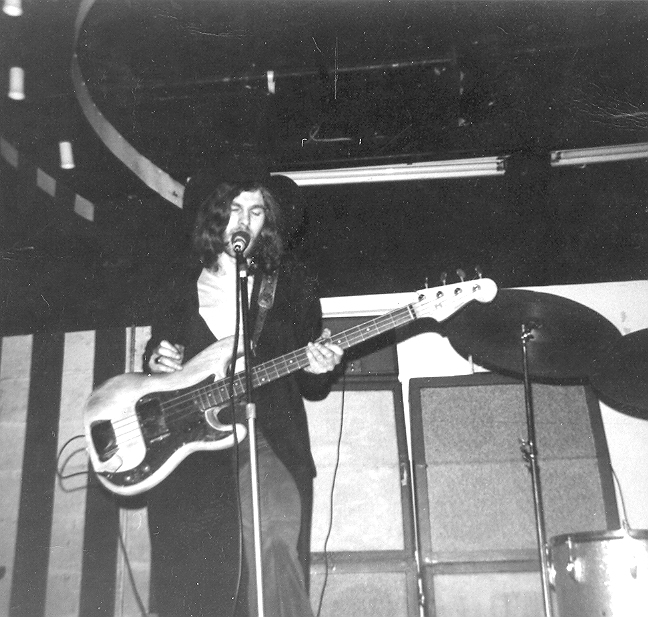
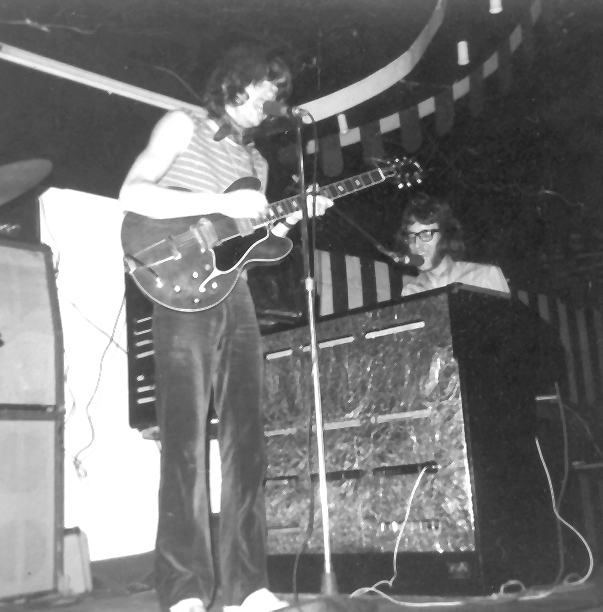
The festival took place on Midsummer Common in Cambridge between the 8th and 11th June 1969, between 8 and 11 acts were on each day including David Bowie, King Crimson and Brian Auger (an organist who I think was technically one of the best of his generation). Returning to the release of the album, there was virtually no publicity at the time, we were having drummer problems which didn’t resolve until June 1970 when Tony Mac joined.
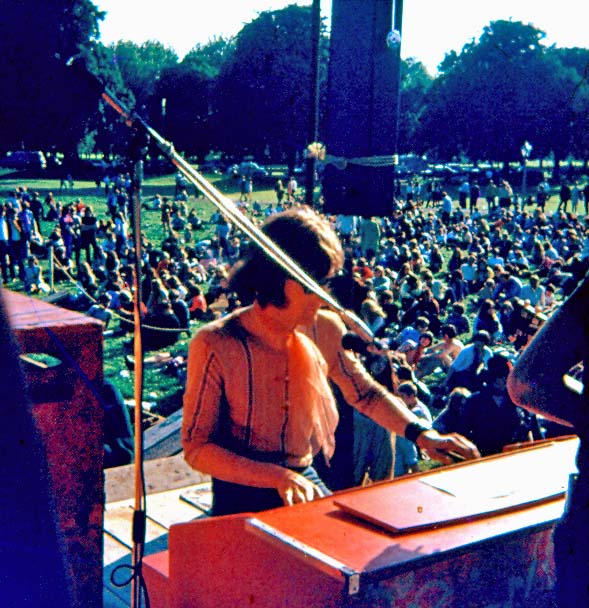
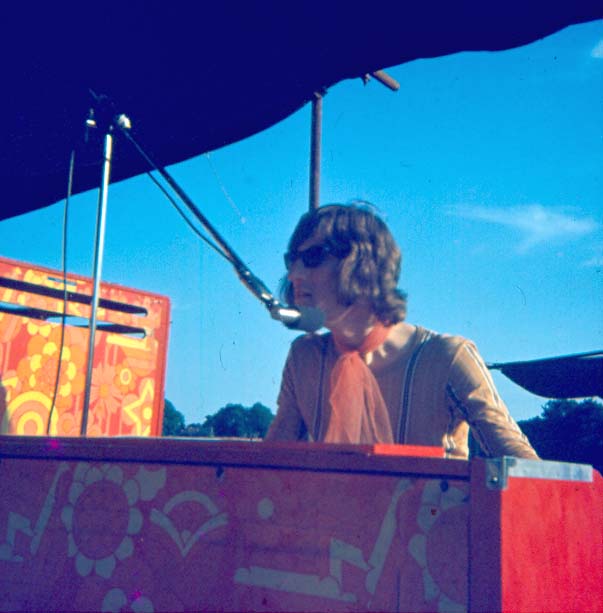
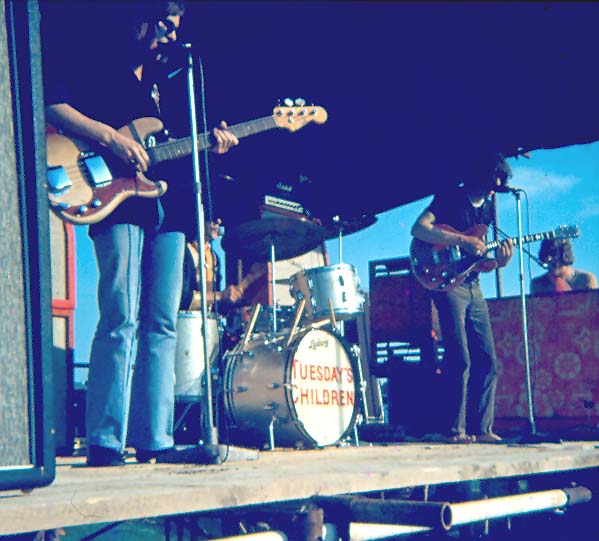
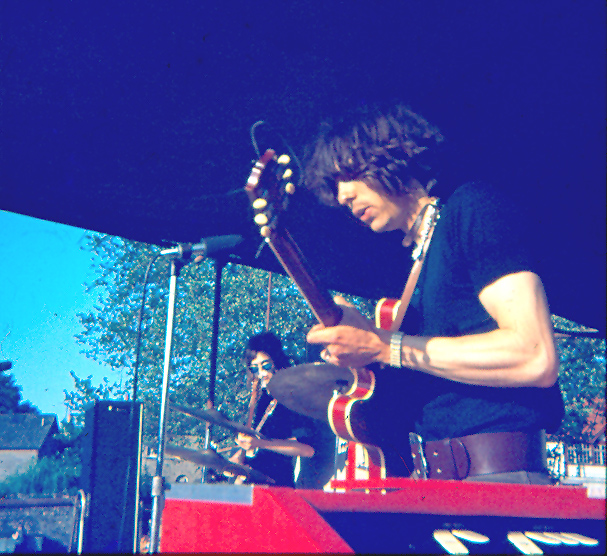
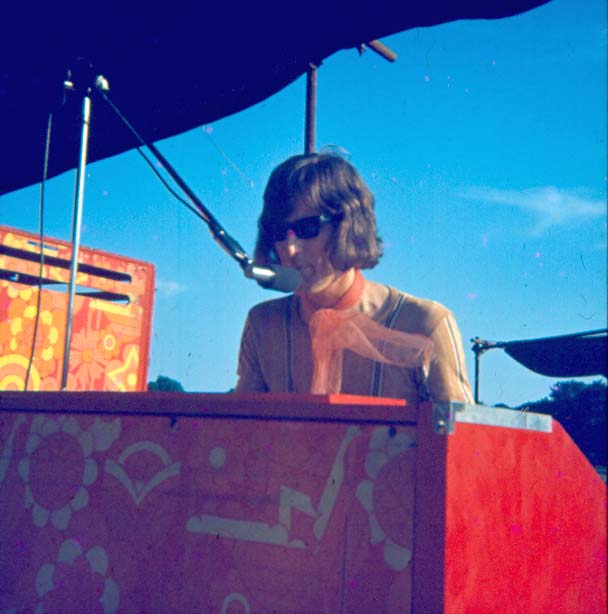
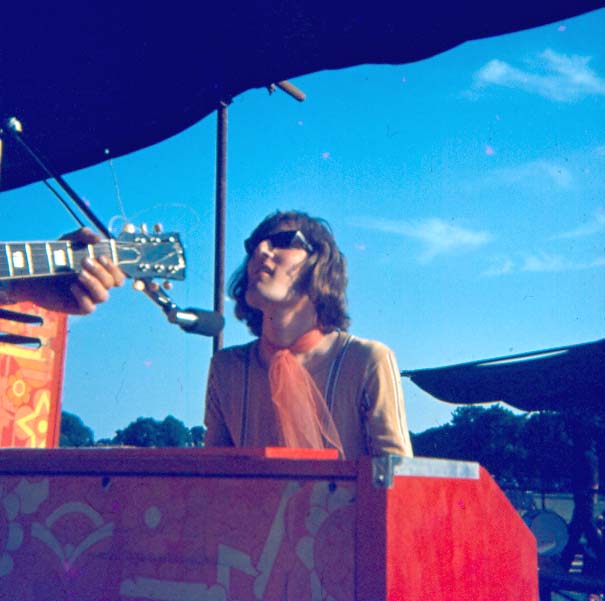
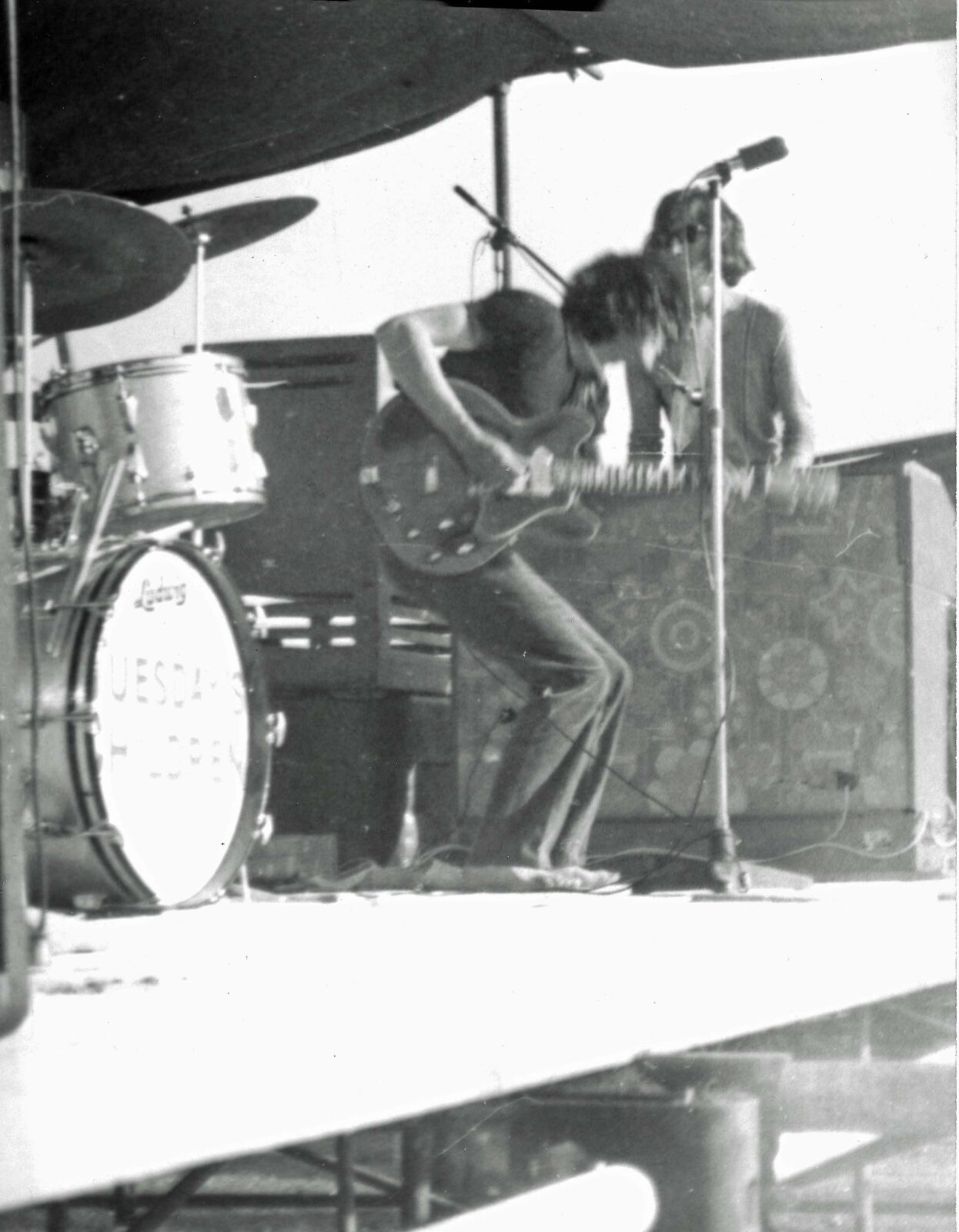
We also left Rufus Manning in June 1970 and our new management were Anastasia Promotions, a company formed by 2 stockbroker friends of mine who fancied managing a rock band. To be fair they worked very hard on publicising the album and the band, but we virtually stopped gigging. They were paying us a retainer which was just about enough to live on. We spent time in the summer rehearsing in a village hall at Upshire which is in Essex, just outside London. We also spent a weekend at a cottage owned by Donovan also just outside London in Hertfordshire, this was our version of getting it together in the country.
We were still under contract to Philips and in October 1970 we went back in the studio to record “Oh Lord I’m getting heavy/Why don’t we be a rock and roll band”, this was done at Island Studios in Notting Hill and the A side featured additional backing vocals and a horn section, at least I had the pleasure of using the studios Hammond B3 complete with bass pedals. These tracks represented a change of direction for Paul Kendrick’s song writing and the band. The songs weren’t prog rock, in fact I don’t know what they were really. Paul’s later song writing (after I left the band in January 1971) can probably be classified as AOR – Adult Orientated Rock. I left in the end because I had lost faith in our management and wasn’t happy with the musical direction, also financially I was feeling the strain. We weren’t gigging very much and I really enjoy live performing, to me that is the most important part of being in a band. After I left I kept in touch with others for a while but I had joined a band with a couple of mates from my soul band ‘The New Jump Band’. We were doing blues and soul covers and were working regularly several nights a week. After I left, Paul went on to 12 string guitar and they got a new bass player. They did not get another keyboard player. I think they finally stopped in 1972. Johnny Parker had replace Tony Mac as drummer in autumn of 1970. He and Mick Ware were later on together in a London rock band called Consortium.
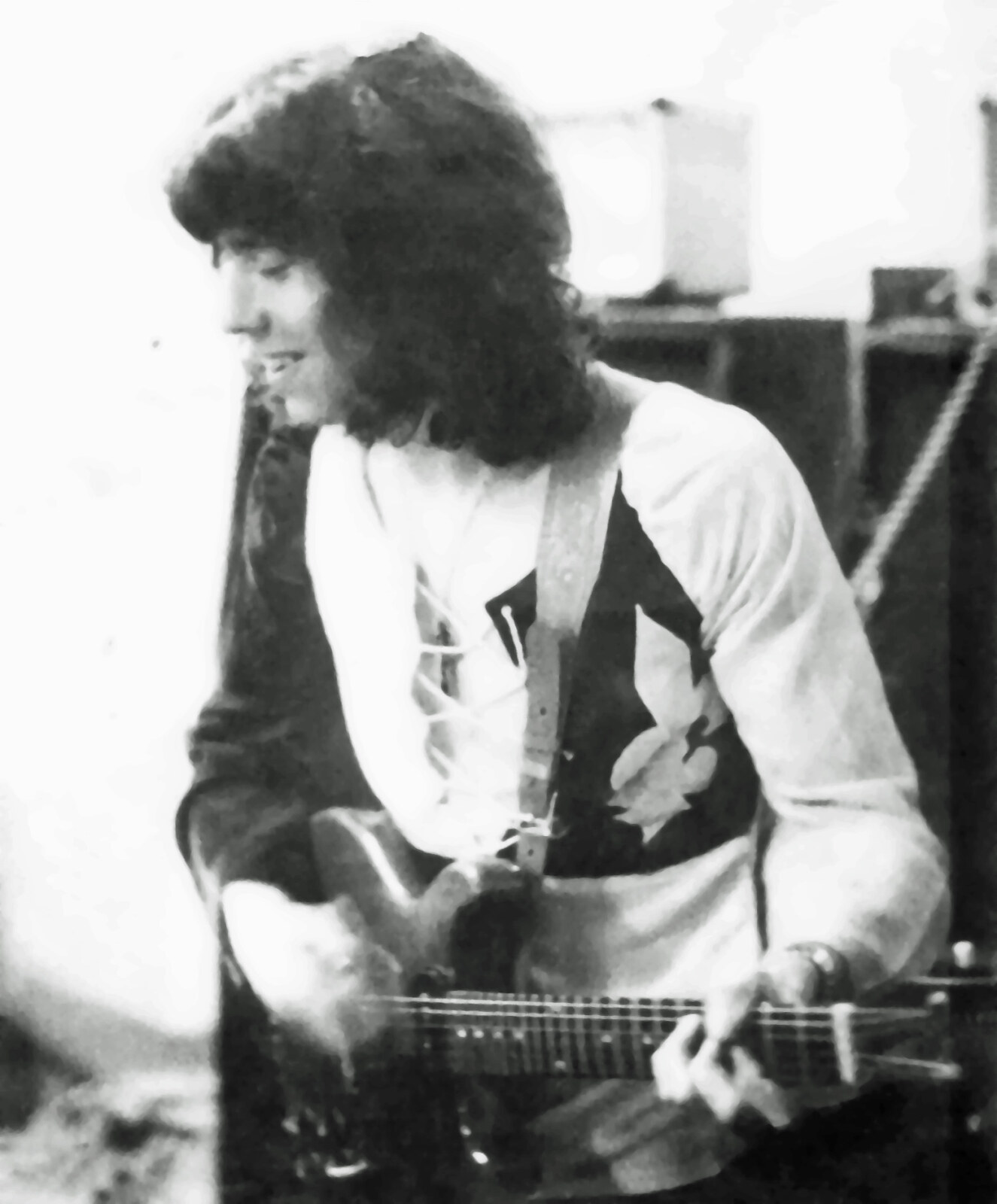
“We were lucky to be left to our own creative devices and I really felt when we completed the album that we had achieved something special.”
In 2007 I started the Czar website – www.czar.org.uk and both Mick Ware and Derrick Gough got back in touch. I haven’t seen Derrick for some time but I am in regular contact with Mick. We arranged for the Tuesday’s Children tracks to be released on Cherry Red Records and for the Czar tracks including all the unreleased tracks from 1971 to be released on double LP and CD by Sunbeam Records. Sometime after these releases a tape of the original recordings of “Cecelia” and “Ritual Fire Dance” recorded in 1969 with Derrick Gough on drums came to light from Roger Kinsey who was our manager at Rufus Manning Associates. I have re-mastered these tracks and put them on to a CD. I made a few copies to send to Roger Kinsey, Derrick Gough and Mick Ware and one or two others. We have totally lost contact with Paul Kendrick, we have looked but have been unable to find him.
The only other studio recording that I have done was when I played organ on the ‘New Jump Band’ (my old soul band) single “Seven Kinds Of Sweet Lovin’/Only Kind Of Girl” in 1967. I did it as a favour for them, It is a soul track written by members of the band. It got nowhere near the charts but later on in the 1980’s it became a track played on the Northern Soul scene, probably because of its rarity.
Looking back I enjoyed playing with Tuesday’s Children/Czar. I like the way the other musicians played and because we were gigging such a lot, the band played well together. I enjoyed recording, particularly the Czar album. We were lucky to be left to our own creative devices and I really felt when we completed the album that we had achieved something special. Regarding the sound, by today’s standards it is a bit primitive and there are some errors which should have been corrected but I think that the musicianship comes through and the performances are very together.
I’m not sure if I can comment on my technique. I think my playing has changed over the years depending what type of music I am playing. I am still a big fan of the Hammond organ/Leslie tone cabinet sound. I think when you are in a band, when you are performing you have to make sure that your playing fits in with what everyone else is playing, after all if you are backing a vocalist you are providing the accompaniment, you can improvise if you get a solo in the song and show off your technique then.
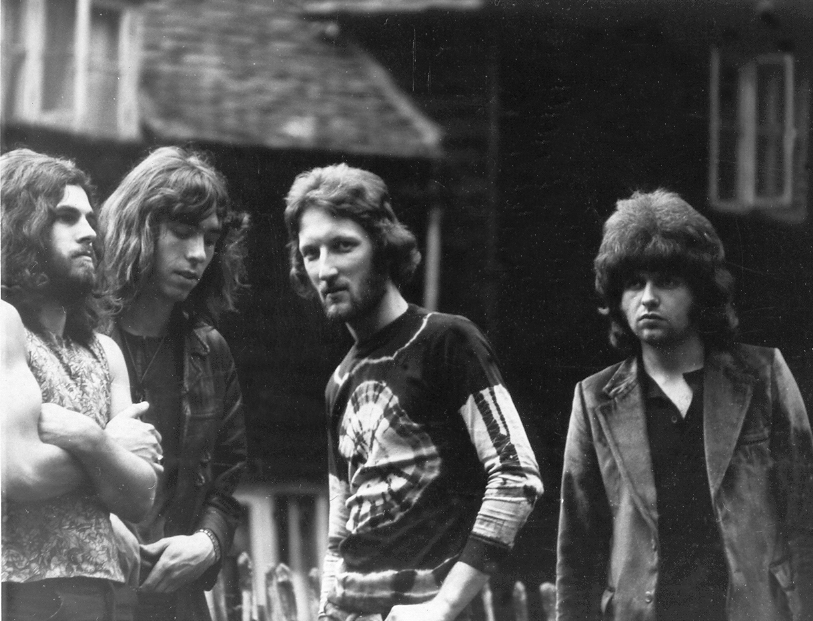
Finally, I am the only member of Czar still performing. I have always worked in various cover bands but for the last 5 1/2 years have gone back to my roots in the 1960’s soul band ‘All Night Workers’. I guess that when I was a teenager, soul and Motown were the biggest influences on my musical life. I remember seeing Otis Redding playing in London when he came over. One of the best gigs that I have ever been to. I suppose my year or so in prog rock with Czar was probably the most creative of my musical career, but I didn’t go near the genre again until working with David O’List in 2018. I think today I enjoy playing and being in front of an audience but I have so many other things going on that I don’t have the time to devote to musical experimentation any more.
– Bob Hodges in conversation with Klemen Breznikar

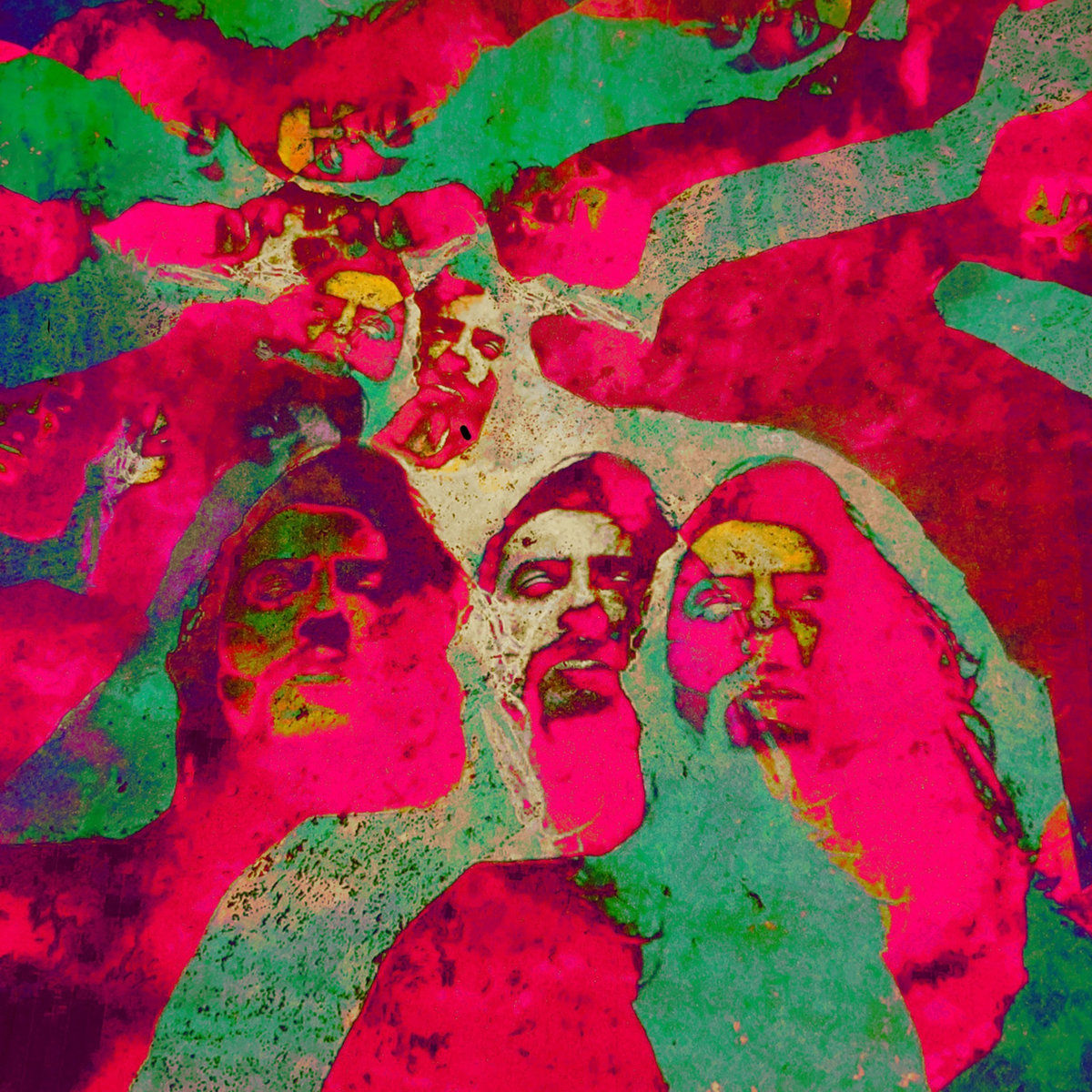
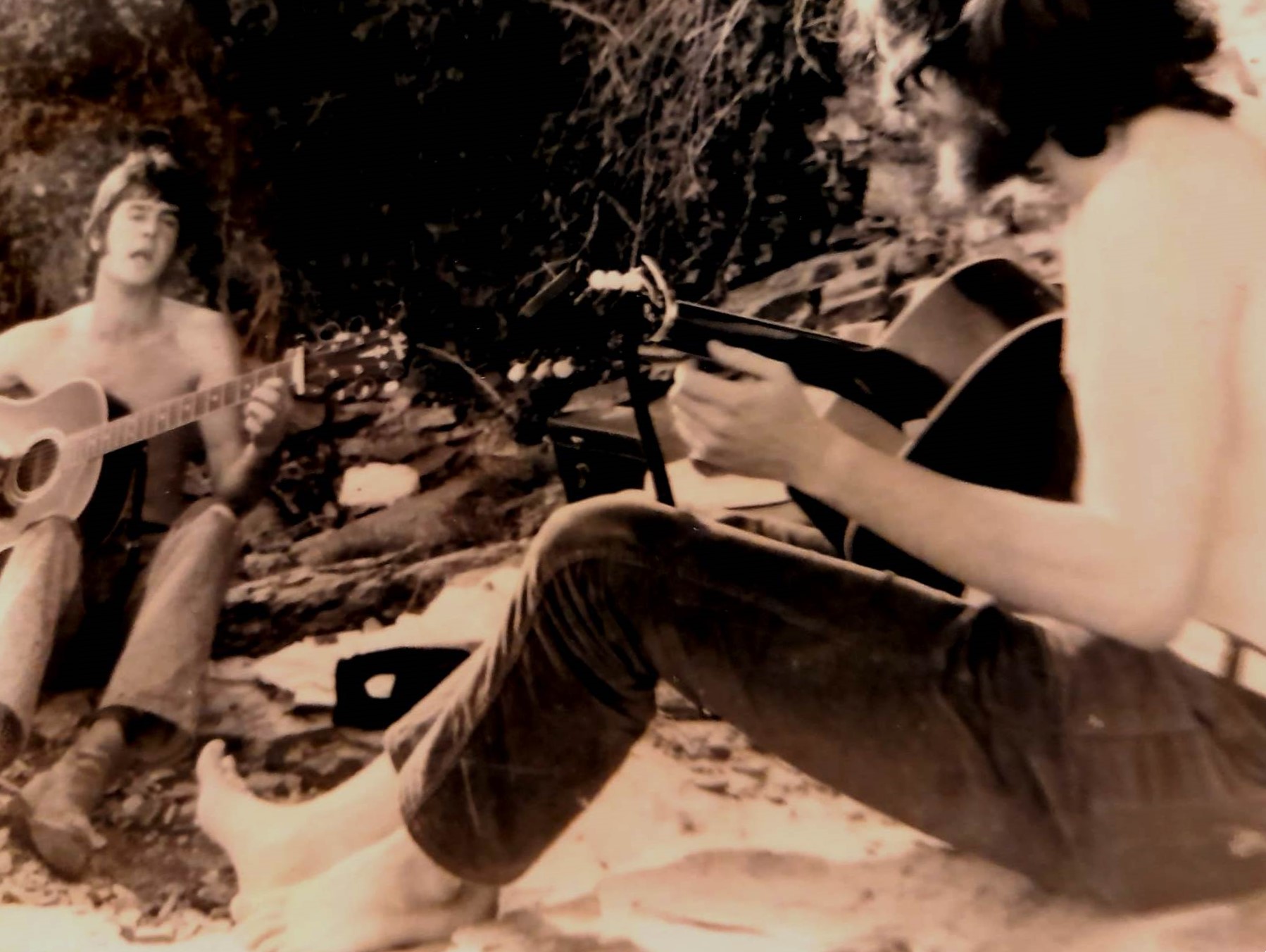

Hi Bob, I worked with Paul Kendrick ‘s dad Dick and brother David for many years in the 1970s in East London. A regular feature of our morning coffee break would be an update of the latest escapades of Tuesday’s Children, later Czar.
We booked Czar to play at The Transport Managers Club ‘Ladies Night’ at The Royal Lancaster Hotel approx 1971? Were you there that night?
We used to socialise with Dick and Marge and would love to be able to contact them if possible. We note that you have lost contact with Paul but should the situation change we would appreciate
any info you have. Regards, Peter
Hi Peter, Just seen your comment, I left Czar at the beginning of 1971 so I don’t think I did the Royal Lancaster Hotel, I have played there many years ago but not with Czar. What happened to Paul is a real mystery, he had several singles out in the 1970’s up till about 1978, he was working with Phil Cordell who had had some success with a couple of singles under the names of Springwater and Dan The Banjo Man(big hit in Germany). Phil died in 2007 and we have not been able to find any trace of Paul. If you hear of anything my email address is: roeberthodges@gmail.com thanks, Bob.